Hello! How are you? I’m still floating from actually having our home study completed. We attended a mini conference last Saturday and I finally got to introduce husband to the many friends and amazing supporters I’ve made in the foster/adoption community. Actually, we were immediately asked about a sibling group but alas, too young and 1 too many.
The day we received our home study, I finally registered for adoptUSkids.org. Finally. I’ve been coveting a membership for over a year. But honestly, it might be more detrimental to my sanity. They send you kids that match the parameters of both our background and what we selected for the children. Do you know how much it hurts to see all the smiling faces that just want homes? If I could inquire on all of them, I would, but we have our limitations.
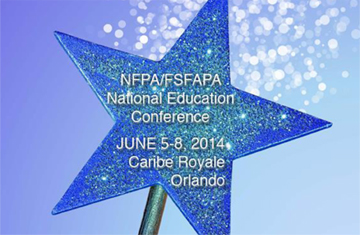
We have the extreme fortune of being given scholarships to attend a national foster parent conference this summer and I need help selecting the classes. There are seriously so many classes that I want to take that I wish I had a time turner to take them all.
My choices have been narrowed down from 4-5 in each section to these. Of these, which would you take?
Session 1
A: I am a Foster Child, all the World is Watching to see what I will Become. I Know Nothing About this World I Belong to………Teach Me!!! — A workshop based on the importance of positive parenting and experiences and how to create experiences that result in permanent connections. Techniques to make fostering a lighthearted, positive experiences for the caregiver, family and most of all, the child in our care will be discussed.
Or
B: Surviving and Thriving Being Helpful — It seems no matter what we do, we can never get it done. Whether it’s our kid’s disturbing behaviors, our co-workers and/or spouses (and their disturbing behaviors), or the agency and state’s ever-shifting, never-ending demands…someone always wants more than we can give. This pragmatic and inspirational workshop is about breaking our own co-dependence and thoughtfully cultivating the internal resources key to thriving (rather than just surviving) the ongoing chaos inherent in the helping act.
Session 2
A: Childhood Traumatic Grief — Childhood Traumatic Grief is a training that provides audience with an overview of childhood traumatic grief, signs and symptoms as well as recommendations on how to help children who are experiencing traumatic grief. For a child in foster care, loss of a parent due to DFPS removal process can feel as if the parent(s) has died. The emptiness of not belonging or having a family can be interpreted by a child as a permanent loss. With time and support from caring adults, children can adjust to the loss of a loved one. Through understanding these effects and how children grieve differently a caregiver can also promote placement stability.
Or
B: Attachments, Relationships; Parenting from a Whole Brain Perspective — The goal of this workshop is to provide participants with tools and strategies to help youth achieve integrated and healthy brain functioning. The training discusses the neurological relationship between the brain, behavioral, emotional, and cognitive functioning in a format easily understood by all. It further explains how relationships, experiences, and memory can affect a child’s brain development and self-regulation. Strategies are explored to help parents, social works and child welfare professionals work with their youth from a “whole brain perspective.” This training is adapted from innovative research in the field of neuroscience, described for the parent and professional in a straightforward and clear manner.
Or
C: Creating and Nurturing Articulate, Expressive, Cultural Thinkers and Lifetime Learners — Education must be a priority, not an option, for youth in foster care. This workshop will provide the “To Do’s” on how to establish an Education Committee that will provide educational opportunities, enrich the lives of our youth, and enable them to become responsible, resilient and active members of their communities.
Session 3
A: Positive Moments, Permanent Changes — A look into the little moments, actions, gestures that seem to make the biggest impact on foster youth. A compilation, of youth, of all ages sharing what matter the most, both positive and negative while in foster care, will be discussed. Looking into our own behaviors will be explored to create an awareness of the effect on others both positive and negative and how we can change ourselves for the better through the experience.
Or
B: More Than You Ever Wanted to Learn about Maintenance Adoption Subsidies! — This workshop is geared for adoptive parents who have adopted or are contemplating adoption of children from Florida’s foster care system. Although, some federal regulations will be discussed, most information will be related to the statutes and administrative rules of Florida regarding the process for negotiation and approval of maintenance adoption subsidies for children adopted from Florida’s foster care system. The workshop will also present the necessary steps for an adoptive parent to follow when requesting an increase to an existing maintenance adoption subsidy. The workshop will also discuss the important steps all adoptive parents must follow in order to prevent any interruption in the child’s monthly subsidy payments and Medicaid coverage when preparing to move out of the state of Florida. (Italics added are mine.)
Session 4
A: Fostering the Future — What is your role in the life of the precious children in your care – adoption, reunification, emergency/safe family or long term fostering? Knowing your role determines your action and how you will maximize the positive influence you have on the child. You will be equipped to operate in EXCELLENCE, master ORGANIZATION, become their ADVOCATE, be an agent of HEALING and PREPARE these precious children for the next step in their bright future.
Or
B: Post Finalization: Post Adoption Communication or Contact Agreement Regarding Siblings or Birth Family Members — This workshop is geared for adoptive parents who have adopted or are contemplating adoption of children from Florida’s foster care system. The workshop will explain the value of as well as the pros and cons of a post adoption communication or contract agreement. Examples of post adoption communication or contract agreements will be provided. The presentation will also explain how changes can be made, if necessary, after a post adoption communication or contract agreement is signed and approved by all parties. The workshop will discuss the benefits of mediation if all parties cannot agree on changes to an existing agreement.
Husband is taking the following and we want to divide and conquer so we learn the max amount of information.
Session 1: Developmental Trauma: The Connections That Make a Difference of a Lifetime — This workshop will explore the impact that childhood trauma has on brain development, including what research shows us about the differing sizes, activity and composition of the normal brain compared to the brains of children who have been abused and neglected. A brief overview will be given of the emotional, behavioral, and cognitive effects of trauma and explore how changes in the brain can have life-long effects, if new neurological connections are not made. The presentation will conclude with a discussion on the importance of early intervention, consistency, continuity and how healthy relationships and predictability can establish new neurological pathways for connections in the brain that will make a difference of a lifetime.
Session 2: Creative Discipline — Parenting and disciplining children who have experienced trauma takes an entirely different mindset. It takes renewing your mind regarding typical disciplinary actions and creativity to attain a loving outcome. Every family is different and every child is different. Explore Grace-Based Parenting that is centered on God’s way of parenting us as His children. Change the environment in your home and find peace for each member of your family.
Session 3: Picking Up the Pieces after Sexual Abuse — Can my child ever have a healthy relationship? How do I help my child heal & thrive? Can their view of sex change? When should I seek help for my child? What do I do if my child is acting out sexually? As a sexual abuse survivor and adoptive mom of 6, Karla will give you the unique insight of the child and help you to understand their thoughts, actions and behaviors. You and your family can thrive and make it through this.
Session 4: Equipping Your Foster/Adopted Child with the Tools to Find their Success Story — The dreams of tomorrow must be a vision of today. It is our responsibility to help guide our foster/adopted child to their dreams, their goals, and equip them with the tools to get there. But first, we must be in a place of communication with our child. Do you know what your child’s dreams are? We must equip our children with the tools to a better tomorrow, today. Let me help you understand your foster/adopted child and the missing links in the foundation that are key to guiding them to their success story. It all begins with a solid foundation.
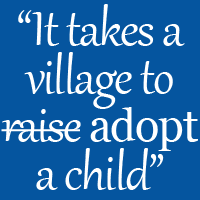 People question why I blog. I have been blogging on different platforms since 2000. I do it for myself. For my well-being. To share my story.
People question why I blog. I have been blogging on different platforms since 2000. I do it for myself. For my well-being. To share my story.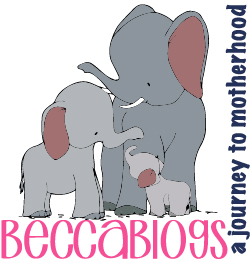

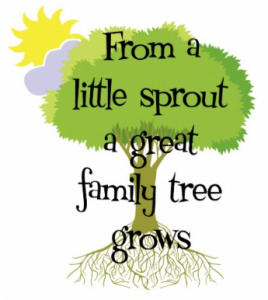 We had an amazing time this past weekend at the
We had an amazing time this past weekend at the 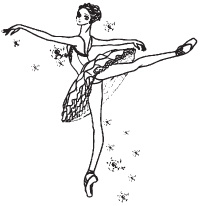 Sooooooo…. we are meeting
Sooooooo…. we are meeting 



